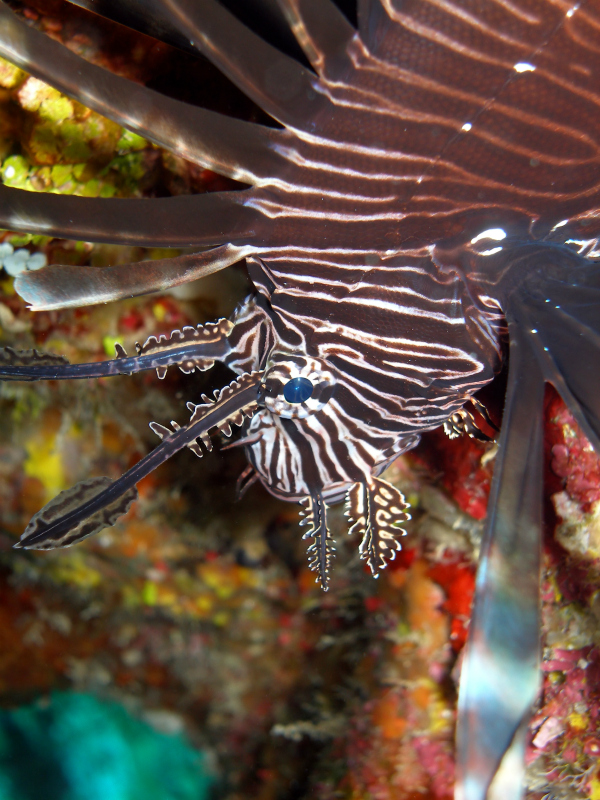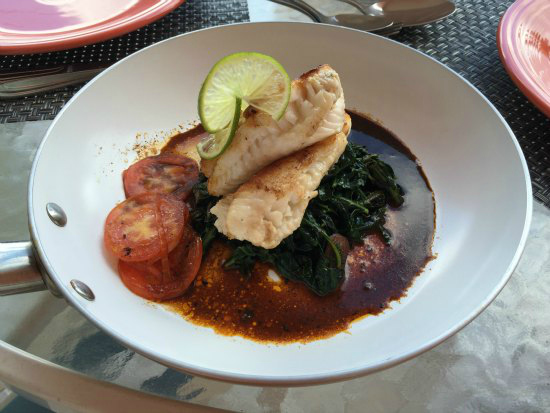
Lionfish is a healthy choice of fish to eat as they are shown to have a higher concentration of heart healthy Omega 3 fatty acids and a lower concentration of Omega 6 fatty acids. This all helps your cholesterol as the fatty acids in lionfish help to lower your bad cholesterol (LDL) and raise your good cholesterol (HDL).
Nutritional studies have also found lionfish to be high in lean protein, and that lionfish, compared to many other fish that we eat, contain lower levels of heavy metals such as mercury.
As far as the nutritional value of lionfish the information that is shown below comes from an independent analysis conducted by the Microbac Laboratories, Inc testing and research facility in Wilson, North Carolina. The Percent Daily Values are based on a 2,000 calorie diet. Your daily values may be higher or lower depending on your own calorie needs.
Nutritional facts about lionfish, are based on a serving size of 100 grams.
- The amount per serving contains 80 calories, of which the calories from fat are zero.
- The total fat is zero grams, either saturated fat or trans fat.
- The cholesterol is 50 mg, which is 17% of your daily value.
- The sodium is 60 mg, which is 3% of your daily value.
- The total carbohydrate is zero grams.
- The dietary fiber is 2 grams, which is 8% of your daily value.
- The sugars are 1 gram.
- The protein is 18 grams.
- The Vitamin A and Vitamin C is 0%.
- The Calcium is 25%.
- The Iron is 0%.
So you can see that lionfish are a healthy fish to eat. They also taste delicious and are surely the number one eco friendly fish to eat in the Western Atlantic ocean, Gulf of Mexico and Caribbean sea.










